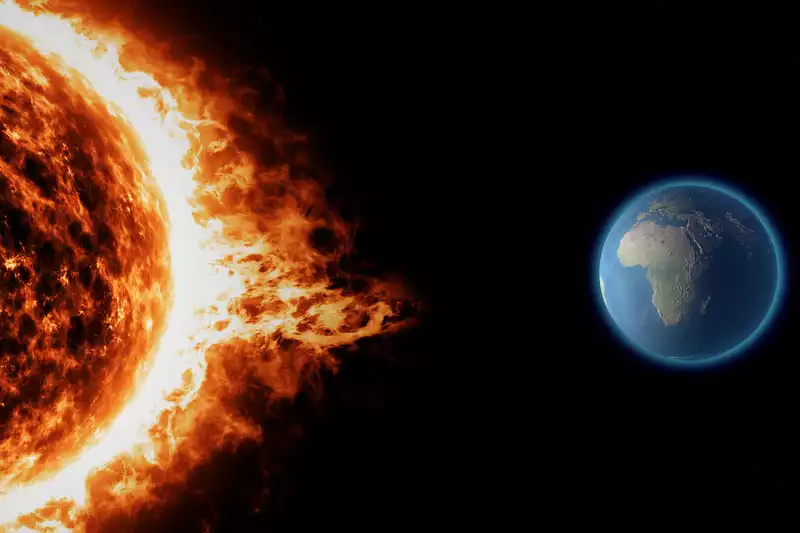The geomagnetic storm of May 1921 was the last major solar event to seriously damage telegraph systems in the mid-20th century. But that was before World War II, and since then more technology has connected us than in Charleston's time. If something similar were to happen, it could cause massive power outages lasting weeks or months, shutting down the Internet and other communications for billions of people. [Sangeetha Abdu Jyothi, assistant professor at the University of California, Irvine, presented a study at the SIGCOMM 2021 Data Communications Conference that suggests a powerful solar storm could lead to an "Internet apocalypse." Her paper, called "Solar Superstorms: Planning for an Internet Apocalypse," describes how such a storm would generate a cloud of magnetized solar particles that would wreak havoc on the power grid and the undersea cables that connect most of the world's Internet The paper explains how this could happen.
As reported by LiveScience, the entire country would be without power for weeks or months. Worse, even when power is restored, the Internet may remain down.
Such a situation would be incredibly bleak. It is hard to imagine how damaging it would be for the country to lose not only power, but also access to the Internet for several weeks. Even more frightening is the possibility that this could happen sooner rather than later; Jyothi's study explains that it is very difficult to predict when another major solar storm will occur.
Nevertheless, thanks to information gathered from weak solar activity and an understanding of how solar activity "waxes and wanes" over its cycle, she expects the sun to become more active in the near future. If that is not bad enough, her paper also states that the upcoming cycle "could be the strongest on record."
The worst part of all this is how unprepared we are. Thanks to the rarity of such events, not much effort has been put into preventing a global Internet blackout, and while the technology used in the power grid has improved since the last major storm in 1921, it will still be difficult to address this problem. In his paper, Jyoti states that the current Internet has not yet been "stress tested by strong solar events" and that we need to prepare for what is coming before it is too late.
Thankfully, Jyoti's report was not all doom and gloom. She stated that regional and local Internet connections are unlikely to be damaged due to the resilience of fiber optic cables to currents caused by geomagnetic fields. Of course, global outages must be addressed. But at the very least, regional and local Internet infrastructure should be intact and available as soon as electricity is restored.
Jyoti also explained how she and other luminaries in her field are studying solar storms. Ideally, one should try to safely model major events in the hopes of finding ways to protect oneself.










Comments